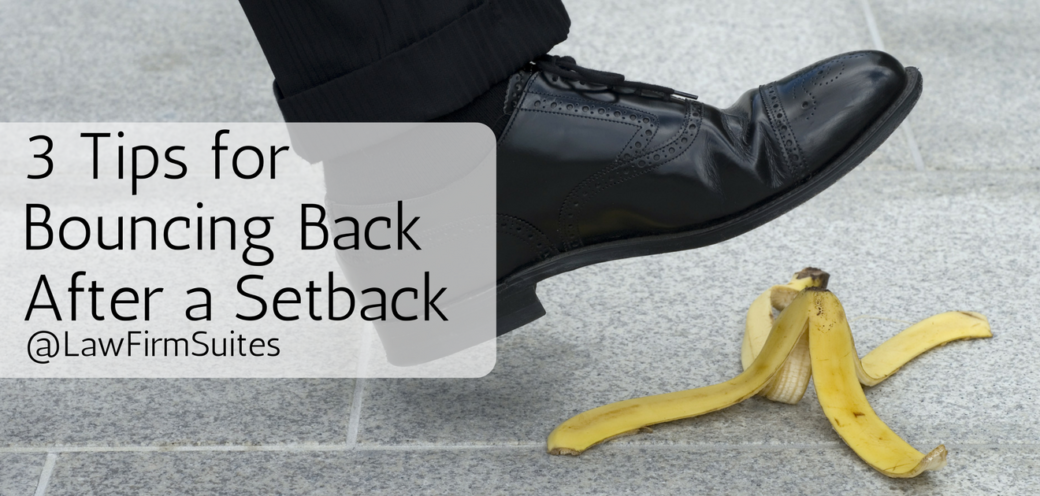Want to grow your practice? Then you will make mistakes. Follow these three tips to ensure you recover quickly and effectively.
If you are going to grow your practice, then you’re going to make mistakes. They are an essential part of any growing business, and how you handle them can determine your firm’s future.
Everyone makes mistakes, but we do not respond the same way. Do you let the problem take control of your life, or do you use it as a learning experience? There are different mental approaches that are scientifically proven to help you bounce back and come out on top.
Here are three tips that will help you after a setback:
1. Think Positively
If you weren’t born with a glass-half full mentality, fear not: optimism can be taught.
Research from Psychologist, Professor, and Author Martin Seligman shows that if we can adjust our “explanatory style”–the way we explain to ourselves why we experienced a particular event–we can learn to stay positive in the face of adversity.
Next time you are eye-to-eye with a setback, think about Seligman’s 3 Ps: Permanence (how permanent is the setback?), Pervasiveness (will the setback affect your whole life or just part of it?), and Personalization (is the setback really something you caused?).
Optimistic tend to notice that bad events are temporary, compartmentalizing them so they don’t affect their entire lives, and don’t completely blame themselves for what happened.
2. Make Healthy Choices
You’re a professional, don’ throw a pity party and binge-watch Friends while eating your third pizza. Active coping, in which you use your resources to manage negative emotions and improve your situation requires more effort but will help you feel better in the long run.
One of the best healthy coping methods is exercising. Working out releases endorphins, the chemicals in our brain that make us feel good. Recent research from Princeton even suggests that exercise reduces anxiety and helps people better deal with stress in the long run.
3. Use Mistakes as a Guide
Another healthy thing to do in the wake of a setback is reflect.
Susan Peppercorn a career and life coach and CEO of Positive Workplace Partners suggests trying growth-oriented thinking. Focus on what you have learned and how this knowledge can help you grow. It does you no good to sit there fixating on some perceived failure.
“Failure can make you feel so discouraged that you lose perspective. If you shift to figuring out what you can learn from the experience and determine how it will help you grow, you can short-circuit the shame-blame thought process,” she says.
This is also a good time to ask yourself a difficult but important question. Are you doing everything possible to help both maintain and grow your practice?
During a momentary setback, you are more likely to be looking at your practice as a whole. It is at this time you should not only look to prevent this mistake from reoccurring but evaluate your entire practice and try to prepare your practice for a brighter and more successful future overall.
There probably is not a lawyer among us who hasn’t faced a setback. It is how we handle those challenges that determines our success.


